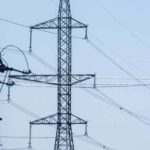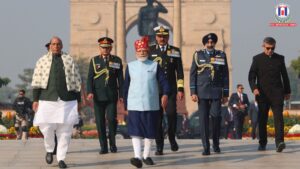
Global stock markets continued their downward spiral for the fourth straight session, with European stocks and Asian indices facing significant losses amid escalating concerns over U.S. President Donald Trump’s newly announced tariff regime. The trade tensions have triggered a wave of criticism from world leaders who warn that the aggressive U.S. measures could destabilize the global economy.
In Europe, equity markets experienced a sharp decline, with major indices ending in the red. The global sell-off comes in response to Washington’s imposition of steep tariffs on a range of imports, including a 25 percent duty on foreign automotive exports and a 10 percent tariff on various other goods. The move has sparked alarm across both advanced and emerging economies. India’s domestic benchmarks, the Sensex and Nifty, also plummeted nearly 3 percent on the same day, reflecting the anxiety that has gripped global investors.
British Prime Minister Keir Starmer strongly criticized the new U.S. tariffs during a visit to Jaguar Land Rover’s manufacturing facility in the West Midlands. Describing the 25 percent automotive tariff and the 10 percent levy on other goods as a “direct threat” to the UK’s industrial output, Starmer emphasized the potential damage to Britain’s already strained economy. He called for immediate diplomatic engagement with Washington to avoid long-term repercussions on UK exports.
From Moscow, Kremlin spokesperson Dmitry Peskov accused the United States of disrupting global economic equilibrium. Speaking at a press briefing, Peskov stated that the broad-based tariff hikes had created “a climate of economic tension,” contributing to volatile markets and gloomy economic forecasts. He added that Russia is actively assessing the situation and will adopt all necessary measures to shield its domestic economy from external shocks.
In South Asia, Bangladesh’s Chief Adviser of the Interim Government, Professor Muhammad Yunus, took a more conciliatory approach. In a formal letter to President Trump, Yunus requested a three-month postponement of a proposed 37 percent reciprocal tariff on Bangladeshi goods. He also proposed lowering tariffs on American exports—such as gas turbines, semiconductors, and medical equipment—entering the Bangladeshi market as a gesture of goodwill and economic cooperation.
With international criticism mounting and financial markets teetering, Trump’s tariff gamble has placed the global economy at a crossroads.


















No Comments: